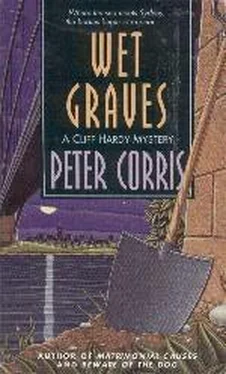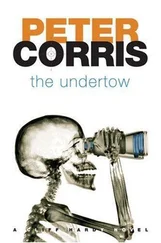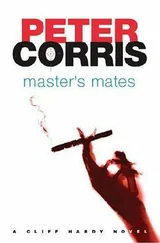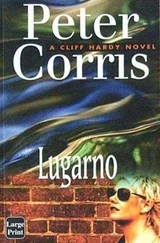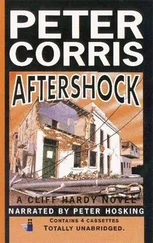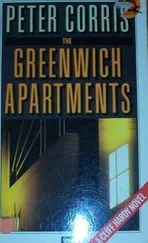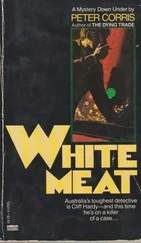Peter Corris - Wet Graves
Здесь есть возможность читать онлайн «Peter Corris - Wet Graves» весь текст электронной книги совершенно бесплатно (целиком полную версию без сокращений). В некоторых случаях можно слушать аудио, скачать через торрент в формате fb2 и присутствует краткое содержание. Жанр: Криминальный детектив, на английском языке. Описание произведения, (предисловие) а так же отзывы посетителей доступны на портале библиотеки ЛибКат.
- Название:Wet Graves
- Автор:
- Жанр:
- Год:неизвестен
- ISBN:нет данных
- Рейтинг книги:5 / 5. Голосов: 1
-
Избранное:Добавить в избранное
- Отзывы:
-
Ваша оценка:
- 100
- 1
- 2
- 3
- 4
- 5
Wet Graves: краткое содержание, описание и аннотация
Предлагаем к чтению аннотацию, описание, краткое содержание или предисловие (зависит от того, что написал сам автор книги «Wet Graves»). Если вы не нашли необходимую информацию о книге — напишите в комментариях, мы постараемся отыскать её.
Wet Graves — читать онлайн бесплатно полную книгу (весь текст) целиком
Ниже представлен текст книги, разбитый по страницам. Система сохранения места последней прочитанной страницы, позволяет с удобством читать онлайн бесплатно книгу «Wet Graves», без необходимости каждый раз заново искать на чём Вы остановились. Поставьте закладку, и сможете в любой момент перейти на страницу, на которой закончили чтение.
Интервал:
Закладка:
Never left home, I thought. And what was it about that photograph of his father?
“I don’t want to bore you. I looked after Father until he died three years ago. He was in his late eighties and he’d lived in a wheelchair for over sixty years. I hated him but I couldn’t help admiring his spirit. He was as nasty to me the day before he died as he had been the day the army rejected me. In a way, a sick way I suppose, that was what kept us together. Anyway, he died and I got used to being alone and I continued to work. But after a time some questions began to occur to me.
What about the service pension? I never got any correspondence about it. And when the numbers of Gallipoli survivors started to get down to a handful, I wondered why Father’s name had never come up. Why the journalists hadn’t ever got onto him.
“I went into his room and dug out all the papers and things of his I’d never looked at, that he’d never let me look at. The only thing from his past he’d ever let me see was the photograph. The one you saw in my room in the Rocks.”
“The ribbons!” I said.
Ballantine shook his head angrily. “Let me tell it. I dug through the papers and found that there never had been any inheritance. He’d won a lottery in 1934, bought the house and invested the rest in other property. We lived well on the dividends all those years until my business brought in more than enough for us. But the worst thing was this-he’d never served in the army at all. Never!”
He was barely moving now and seemed unable to continue. I spoke softly, hoping to soothe him. “I was in the army. Did officer training and all that. We were supposed to know about the service ribbons, what they signified. Some of those ribbons in the photograph aren’t Australian. It’s been nagging at me ever since I saw the picture.”
Ballantine nodded and began to speak quickly. “You’re right. They’re Canadian and New Zealand. It was all a fake, a fantasy. He worked on the bridge as a labourer from the late 1920s. He was injured in the fabrication workshop when a girder fell on him. He invented the war hero story, and I suffered because of it every day of my life. He was an evil man.”
We were past the halfway point now, going south. I wondered how much longer the story would take and whether another crossing would be needed. Ballantine wasn’t moving any more quickly, but the words were tumbling out.
“I met Barclay by accident. He came to me for some work on his boat. We talked. He told me about his father and the bridge. He was so pleased with himself in every way. His life had worked out so perfectly. His father had given him everything he’d ever wanted. And mine had taken every-thing away from me. I got into a rage and I… I killed him. I couldn’t believe that I’d done it at first, and then I couldn’t believe how wonderful it made me feel. I tried to resist the impulse, but it was too strong for me. I searched out the others and killed them too. I know it was wrong, but I couldn’t help it.”
“What about Glover?” I said.
“He was the worst. The most horrible person I ever met. The others weren’t so bad, just so… so comfortable and self-satisfied. They were dead when I put them in the water, but Glover wasn’t. I wanted him to be alive and aware of what was happening, so I didn’t wrap him. It seems I didn’t chain him properly either.”
I didn’t know what to do. He seemed calm, but there was a pent-up energy in him and I knew how strong he was. He’d killed several fit, healthy men, and he said he had an iron bar in his pocket. I took a grip on the. 38 in my pocket and plodded on.
“I got in touch with Stan Livermore as a way of finding the people I wanted. Old Stan knew everything about everyone connected with the bridge. I thought I might be able to help some of the veterans, too. But I didn’t do anything for them. I’m sorry about old Stan. I didn’t mean to kill him, just to frighten him so that he wouldn’t say anything about me to you or anyone else. But I’d exhausted myself getting there before you and there wasn’t much time. I was a little panicked and too rough. He was very old and frail.”
We were getting towards the south end of the bridge, and Ballantine suddenly speeded up.
“I knew it was coming to an end. The feeling wasn’t the same. The old woman was an awful creature, but I’m sorry about what happened to her.”
I was almost trotting now to keep up with him. Suddenly he thrust his shoulder at me and sent me spinning, crashing into the metal barrier on my left. He swept my feet out from under me with a kick and broke into a run. I shouted and struggled up on a twisted ankle; I hobbled on, but he’d gained ten metres on me. He stopped and his arm swung up. I ducked but he wasn’t offering a threat. He was reaching up for something above him, something attached to the metal superstructure arching above us. Then he was climbing rapidly, hands and feet, clear of the walkway. A rope ladder. I limped forward but before I could reach the spot, the ladder had been twitched up, up and away.
Ballantine climbed along a wide metal strut that intersected with a complex of girders and wires that reached up to a dizzying height. I stood rooted to the spot and watched him climb. He slid and slithered but clung on; he used his rope ladder to get over tricky parts and he went up very high, very quickly. I got a look at the ladder; it was made of something light and slick, like nylon. A man came running towards me. “What’re you doing?”
I pointed skywards. Ballantine had emerged from behind a pillar and was swarming up his ladder.
“Jesus,” the man said, “should I get an ambulance or what?”
“You could use the emergency phone. Tell them there’s a man climbing the bridge.”
“Right.” He dashed off and I propped myself against the railing and stared up at the mass of grey metal. The man crawling and scrambling up it shrank to the size of a toy soldier. He was more than halfway to the top of the arch and still moving when I heard the sirens. They drew nearer and the flashing lights started to lend a chaotic drama to the scene. The traffic slowed and snarled as drivers watched the crowd form. I was joined on the walkway by a policeman and other people who’d appeared from nowhere. A train roared along the tracks and drowned out the honking horns and screaming sirens. Unconsciously, we shuffled back along the walkway towards the middle of the bridge, following the progress of the man above.
“My God,” a woman said, “he’s going to jump.”
Ballantine reached a point where a strut ran out horizontally just below the centre of the arch. He stood, balanced himself with both hands outstretched and stepped out into the void. A whoosh of sound escaped the throats of the people watching as he plummeted. A fierce gust of wind twisted and turned him in the air and threw him against the railway overhead that jutted out beyond the arch not far above us. We heard the body hit with a soggy thump, and we gasped again as the impact flicked it back into space and it fell, fluttering and broken, into the dark water.
22
David John Ballantine, 66, of 21 Banksia Street, Drummoyne, had told me most of the truth about his life in our walk across the bridge. He’d omitted the fact that he’d been institutionalised several times for mental disorders. He had offered violence to himself and others over the years, but he was mostly in control and ran, as he’d said, a successful business as a boatbuilder and restorer. The police pieced his life together in the days after his battered body was taken from the harbour. They found ample evidence of his methods of killing and disposing of his victims. They found photographs and notes which showed how thoroughly he’d planned and executed the abductions and waylayings.
Читать дальшеИнтервал:
Закладка:
Похожие книги на «Wet Graves»
Представляем Вашему вниманию похожие книги на «Wet Graves» списком для выбора. Мы отобрали схожую по названию и смыслу литературу в надежде предоставить читателям больше вариантов отыскать новые, интересные, ещё непрочитанные произведения.
Обсуждение, отзывы о книге «Wet Graves» и просто собственные мнения читателей. Оставьте ваши комментарии, напишите, что Вы думаете о произведении, его смысле или главных героях. Укажите что конкретно понравилось, а что нет, и почему Вы так считаете.
